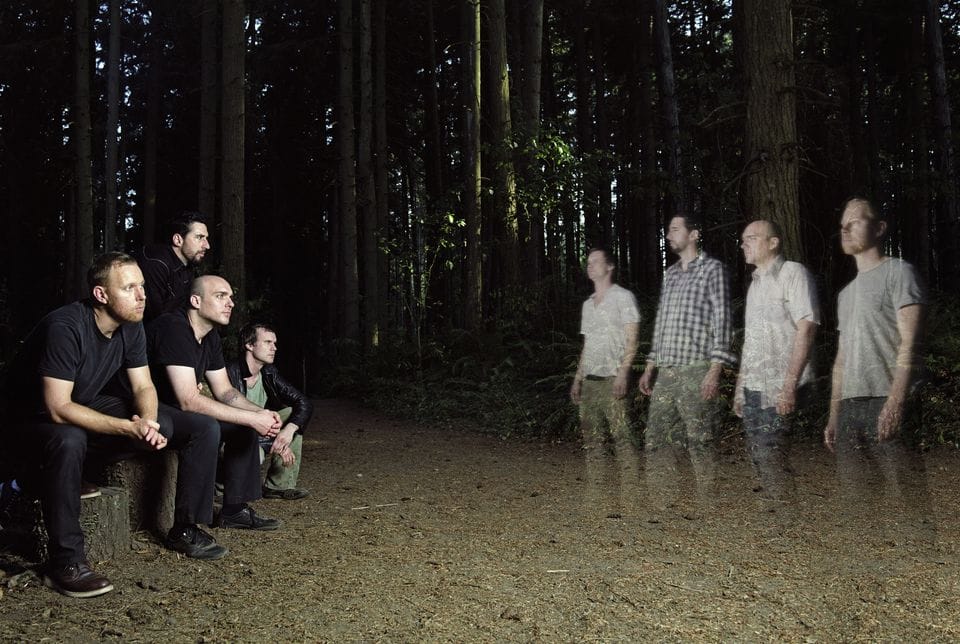2024.50
I'm pretty open about how I loathe poetry prompts. I rarely connect with them. Write a poem about a geographical feature...ok, but who gives a shit? I know I don't.

Back in early October, I was in Gainesville, Missouri, for River Pretty. It's a strange writing retreat for me. My parents were both raised in Ava, Missouri—not 45 minutes away. And there is a timeline where my grandparents could've raised me, and I would've lived a very different life. Not that southeast Kansas was much better, but I guess it was an inch.
Richard Jackson was there this time. I've always wanted to meet him. After my first reading at the retreat, poems I had written while traveling the world, he came and found me in the back of the room, pointed his finger at me and said, You! You're good. And then my soul floated up to the sky like a balloon lost to space for the rest of the weekend.
Now that I've read more of his poetry, I can see natural similarities in our work. Just small things, choices he makes in a line or a poem where I find myself thinking: yeah, that's where I would've gone too. I make it sound like we're the same and we're not. I'm trying to tell you I've merely gotten lucky in some of my decisions, not that I know what I'm doing.
I'm pretty open about how I loathe poetry prompts. I rarely connect with them. Write a poem about a geographical feature...ok, but who gives a shit? I know I don't. And listen, I know sometimes, prompts can be valuable. A good prompt might be all you need if you're stuck with writer's block. I get it.
Maybe my problem is that prompts need to be frameworks for me. After writing software for 20 years, it seems like I can take almost any set of inputs and get something out—not always good, but something. Thinking about Half Dome just isn't going to get me there. For others, it's a valuable tool—let me acknowledge that. If you love them, I'm sincerely happy for you.
Today's Poem
I've been sitting on a poetry prompt from Richard Jackson for a month. It's a good prompt. A lot of published poems have come from this prompt. And afterwards, when I had finally written something from this prompt, I was—I am—supposed to email it to him. I haven't done that yet, but I probably will.
Maybe you'd like to try it:
- Include a vegetable
- Include a body part
- Include a philosphical or scientific idea
- Include something from history, an event or person, not related to #3
- Include a place you think is exotic, not related to #3 or #4
- Include an article of clothing
- Include something mechanical, a tool or machined part
- Include a reference to a piece of music or musician
- Include an animal
- Include a famous person living today
Ten inputs, one output—that is, the poem. Here's what I started with:
- Include a vegetable: Onion
- Include a body part: Toe
- Include a philosphical or scientific idea: Contractualism
- Include something from history, an event or person, not related to #3: Overturning Roe v. Wade
- Include a place you think is exotic, not related to #3 or #4: Angkor Wat
- Include an article of clothing: scarf
- Include something mechanical, a tool or machined part: pallete fork of a watch
- Include a reference to a piece of music or musician: Sunny Day Real Estate
- Include an animal: horse
- Include a famous person living today: Joe Rogan
You can't think about your answers too much. You're about to discover something. Maybe at the end, the body part you picked isn't right, but wait until the end to know that. Just see where the poem takes you. If you were in software, these would be the use cases your software would have to support. Your algorithm isn't done until accounts for everything and passes your unit tests.
Write the code. Write the poem. See where it takes you. This is where mine took me.

